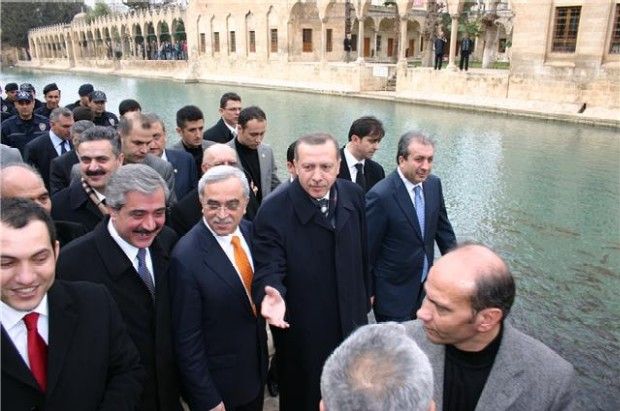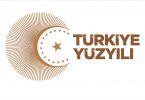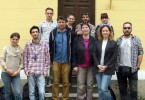Niyazi Dalyanci
“The results, so far, are not satisfactory,” Prime Minister Tayyip Erdogan said just after midnight at his party headquarters commenting on the incoming figures from the polling stations at Sunday’s local elections.
“We will derive the necessary lessons from the message that the nation has given us and we will do the necessary adjustments in our policies,” he added.
The palatial headquarters of Erdogan’s Justice and Development Party (AKP) in Ankara had been preparing for jubilations over yet another election victory with a big screen placed at the large car park in front and plans for the prime minister to address cheering crowds from the balcony as he did after his landslide victory at the July 2007 parliamentary elections.
As the early results did not indicate such a massive triumph, Erdogan preferred to address members of the press inside the briefing chamber at his headquarters.
The reason for the prime minister’s chagrin was, AKP’s votes hardly reached 40 percent of the total compared to 42 percent in the 2004 local elections and 47 percent in general elections in 2007.
Another reason was his party could not win in major constituencies such as Izmir and Diyarbakir that Erdogan announced as his primary targets during his election campaigning. In other places the race was close with the main opposition Republican Peoples Party (CHP) that managed to increase its votes from 21 percent in 2004 to 28 percent on Sunday. Rightwing Nationalist Action Party (MHP) also recorded gains from 10 percent to 15 percent in its share in the overall vote.
In Istanbul, although the metropolitan municipality remained under the AKP mayor Kadir Topbas, CHP’s Kemal Kilicdaroglu came as a close runner up with almost 37 percent of the vote. Kilicdaroglu, a deputy in the parliament who made headlines last year with a series of revelations of corruption against AKP politicians was introduced as a candidate for Istanbul by his party hoping to cash in his reputation as an honest inspector. In Istanbul, AKP also lost several important municipal administrations in smaller constituencies.
In the southeast AKP lost mayors in Hakkari, Turkey’s southeasternmost province and Van to Democratic Society Party (DTP). But the most significant loss was in Siirt, the constituency that sent Erdogan to the National Assembly in 2003 where DTP also won the mayor’s office.
The election results also show that DTP is the first party with a large margin in Turkey’s southeastern provinces populated by the country’s Kurdish citizens. In Diyarbakir, Osman Baydemir remained as the mayor with increased number of votes, polling 65 percent of the vote while AKP remained at the 30 percent mark despite concentrated efforts to win the city from DTP prior to elections.
In the Turkish capital Ankara, AKP’s Melih Gokcek, a politician who has been the target of numerous corruption charges, won by a margin of 7 points, polling 38.5 percent compared to CHP’s Murat Karayalcin who got 31.5 percent of the vote. However, the polling was marked by late night disturbances when CHP followers accused Mayor Gokcek of interfering with the counting, stealing votes, causing power cuts while the counting was still going on. CHP followers scuffled with police and municipal workers accused of bringing sacks of tickets from unspecified destinations to the local election committee. CHP will probably contest the results in the capital, accusing AKP of rigging the elections.
On Monday morning Turkey’s map shows an interesting divide with most coastal provinces such as Izmir, Antalya, Mugla, Mersin and the all three provinces in eastern Thrace displaying a CHP victory, inland provinces going to AKP and the southeast to DTP.
The fact that AKP deteriorated in Turkey’s relatively developed provinces where the country’s industry is concentrated is the result of the economic crisis which compelled companies to massive layoffs, according to commentators.
The defeat of the ruling party in the Kurdish provinces is seen as Erdogan’s adoption of a belligerent tone towards the Kurds recently.
In total, AKP won in 45 provinces compared with CHP’s 13. MHP became triumphed in 10 of Turkey’s 81 provinces and DTP in 8.
This compares with the 2004 local elections when AKP won in 58 provinces as opposed to CHP’s meager 8.
“We are still the biggest party”
Erdogan in his midnight address to the media said that although his party lost some ground, it is still enjoys the support of the nation by far. “The total of the votes polled by the two opposition parties that follow is either less or equal to the AKP,” he observed.
Erdogan also gave signals that he might go to cabinet reshuffle shortly. “We might continue our way by taking such a step. This will not be an unusual move for our party group also our friends in the cabinet should take it as normal move,” he said.
The sounds coming from CHP was quite the opposite. CHP’s number two, Onder Sav said at an early morning press conference that AKP’s “collapse” has begun.
In short, the results of the March 29 local elections which followed after a full fledged national campaign by all the parties as if the people would vote for a new government constitute the first sign that the Turks are not so comfortable with the Erdogan government. And it is a warning that if the AKP does not mend its ways, it may face defeat in the next general elections only two years away.







